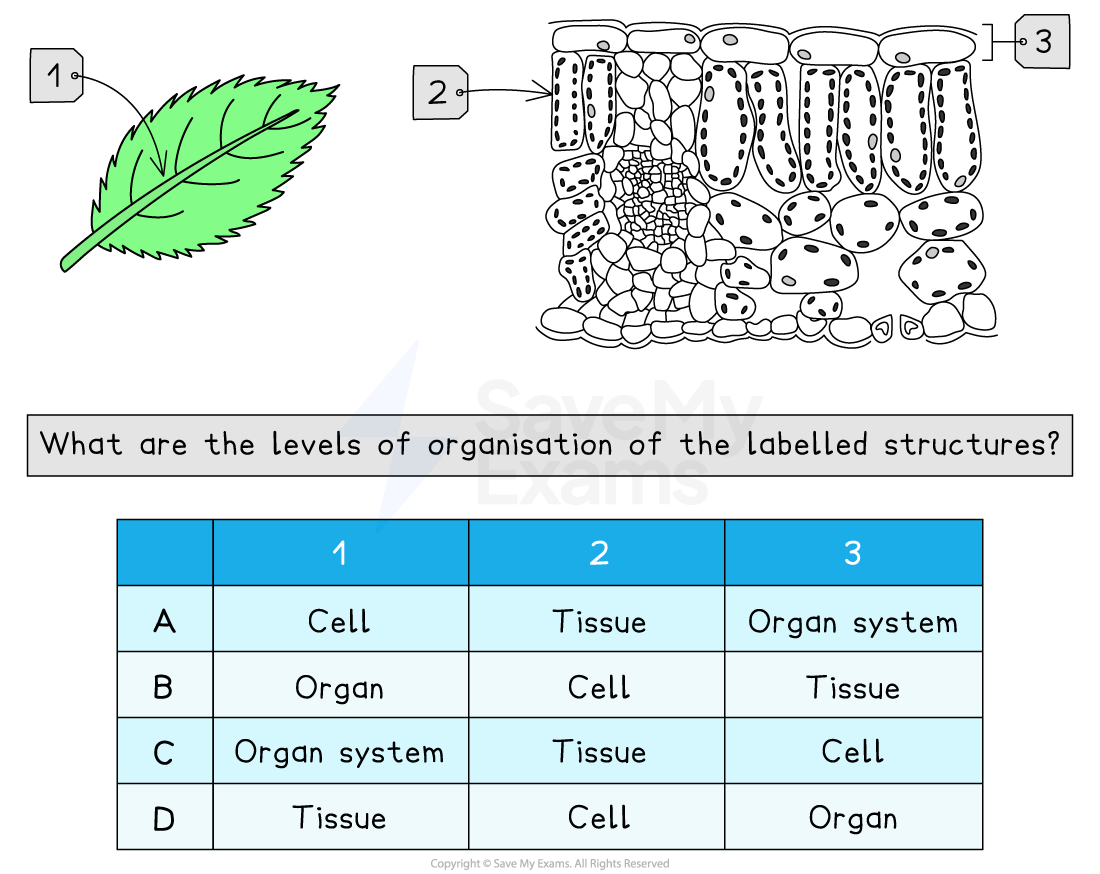Levels of Organisation (Edexcel IGCSE Biology (Modular)): Revision Note
Exam code: 4XBI1
Did this video help you?
Cells, Tissues, Organs & Organ Systems
Cells are the basic building blocks of all living organisms
Unicellular organisms are made from one cell, whereas multicellular organisms are made up of collections of cells
Cells are made up of structures called organelles, such as the nucleus, mitochondria and ribosomes
In complex multicellular organisms:
Cells are specialised to carry out particular functions
These specialised cells form tissues
The tissues form organs
The organs form organ systems
Different Levels of Organisation Table
Level | Description |
|---|---|
Organelles |
|
Cells |
|
Tissues |
|
Organs |
|
Organ systems |
|


Multicellular organisms have many levels of organisation
Examples of Organ Systems in Animals & Plants Table
Organ system | Organs | Tissue examples |
|---|---|---|
Shoot system |
|
|
Root system |
|
|
Digestive system |
|
|
Circulatory system |
|
|
Respiratory system |
|
|
Excretory system |
|
|
Nervous system |
|
|
Reproductive system |
|
|
Worked Example

The answer is B: 1 is the leaf organ, 2 is a palisade mesophyll cell and 3 is the upper epidermis.

Unlock more, it's free!
Did this page help you?